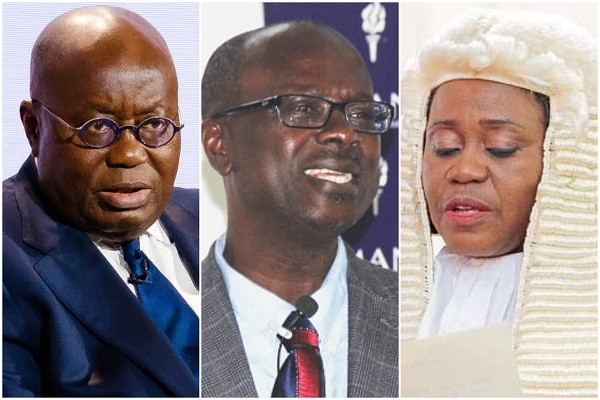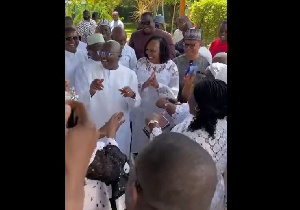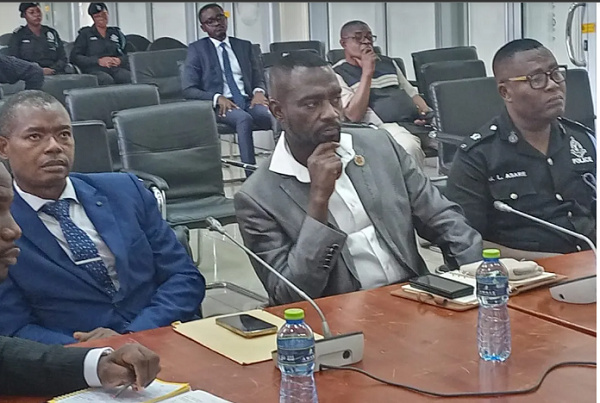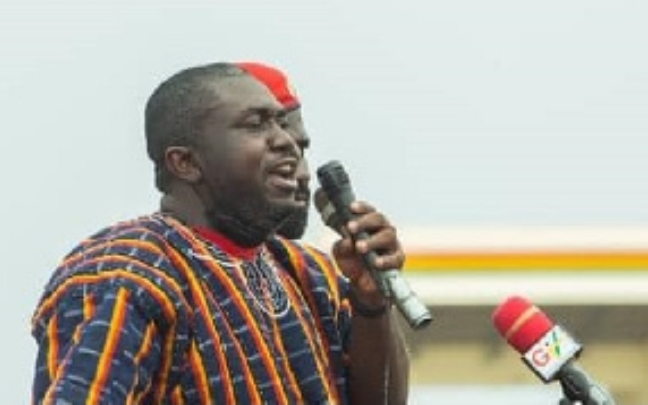Azar reacts to letter showing how Akufo-Addo handled his petition for CJ Torkornoo removal

The details, contained in a letter the former president wrote to his Council of State, show that Akufo-Addo dismissed the petition after receiving a response from the Chief Justice, which he then forwarded to the Council, without hearing from Kwaku Azar himself.
In a post shared on X on April 16, 2025, Kwaku Azar stated that Akufo-Addo’s decision to send the Chief Justice’s response to the Council of State without granting him the opportunity to respond was wrong.
He argued that the action violated Article 146(6) of the 1992 Constitution, which outlines a two-stage process for the removal of the Chief Justice: the filter phase (initial screening) and the forum phase (full inquiry).
He emphasised that the filter phase does not require the President to solicit a response from the Chief Justice and send it to the Council of State.
“The filter phase, led by the President in consultation with the Council of State, is a threshold screening mechanism. Its purpose is to determine, based solely on the petition, whether a prima facie case exists.
“If such a case is found, the matter proceeds to the forum phase, a full inquiry conducted by a specially constituted committee. At that stage, both parties are given the opportunity to present evidence, confront each other, and be heard in accordance with the demands of natural justice,” he wrote.
The academic added that the former president should have shared the Chief Justice’s response with him and allowed him an opportunity to defend his petition before dismissing it.
What he found even more troubling, he said, was that Akufo-Addo did not disclose, either in private or in his publicly released decision, that the Chief Justice had submitted a response to the petition.
“More disconcerting is that in his publicly released decision, the President made no mention whatsoever of having received such a response. This was not a trivial omission, it concealed a procedural choice that had significant implications for fairness.
“At the very least, I should have been given a copy of that response. I should have had the benefit of reading it, understanding it, and, if necessary, responding to it. That is the bare minimum the rules of natural justice require.”
Background:
In December 2024, President Nana Addo Dankwa Akufo-Addo threw out Kwaku Azar’s petition for the removal of Chief Justice Torkornoo, stating that it had no basis.
However, a leaked letter, which was recently shared by the Majority Leader of Parliament, Mahama Ayariga, on social media, showed that Akufo-Addo had started the required legal process for the removal of the Chief Justice.
It was indicated in the letter that Akufo-Addo had asked Justice Torkornoo to respond to the petition for her removal.
The Chief Justice responded to the petition, and the former President forwarded the response to the Council of State for their consideration.
“I write further to my letter, dated December 18, 2024, to you, forwarding a copy of the petition dated December 17, 2024, from one Professor Stephen Kwaku Asare. By a letter dated December 20, 2024, I forwarded a copy of the petition to the Chief Justice, in line with the rules of natural justice and the right to a fair hearing, for her response to the allegations made against her in the petition.
“By a letter dated December 23, 2024, the Chief Justice submitted her response to the petition together with supporting evidence. I hereby forward a copy of the Chief Justice’s response and supporting documents for your consideration,” part of the letter reads.
Read Azar’s full post below:
Audi Alteram Partem Must Cut Both Ways — GOGO
Nananom, Anuanom, Nnamfonom, and Yaanom:
In any constitutional democracy, due process is not a luxury; it is the bedrock of legitimate governance. Central to that due process is audi alteram partem—“hear the other side.”
The Constitution rightly invokes this principle in Article 146(6), which outlines the process for the removal of the Chief Justice. It does so by establishing two distinct phases: a filter phase and a forum phase.
The filter phase, led by the President in consultation with the Council of State, is a threshold screening mechanism. Its purpose is to determine, based solely on the petition, whether a prima facie case exists.
If such a case is found, the matter proceeds to the forum phase—a full inquiry conducted by a specially constituted committee. At that stage, both parties are given the opportunity to present evidence, confront each other, and be heard in accordance with the demands of natural justice.
But recent events raise a troubling question: Who exactly is “the other side” in the filter phase?
I recently submitted a petition for the removal of the Chief Justice. Consistent with the Constitution’s design, I expected the President and the Council of State to assess the petition based on its contents—nothing more. The filter, I understood, was not a forum for adjudicating disputed facts or entertaining private defences.
However, I have now discovered that the President elicited a response from the Chief Justice before concluding that no prima facie case existed.
More disconcerting is that in his publicly released decision, the President made no mention whatsoever of having received such a response. This was not a trivial omission-it concealed a procedural choice that had significant implications for fairness.
At the very least, I should have been given a copy of that response. I should have had the benefit of reading it, understanding it, and, if necessary, responding to it. That is the bare minimum the rules of natural justice require.
Without that opportunity, I was denied a voice in a conversation that decided the fate of my petition. Had I seen the response, I might have challenged the reasoning of the President or the Council of State, or exposed inaccuracies or contradictions in the Chief Justice’s defence. But I was never given the chance.
Let me be clear: this is not about reversing what happened in my case. I do not raise this issue to seek a procedural fix for a past injustice.
Rather, I raise it to prompt a serious reconsideration of how we structure and execute the Article 146 process going forward. Because if the Constitution is to be a living instrument, then its application must evolve to reflect not just formal legality, but fairness, balance, and transparency.
We must be honest about the risks of a process that permits secret rebuttals, undisclosed defences, and determinations made in the dark.
If the President chooses to receive and rely on the judge’s response at the filter stage, then the petitioner must, under the same principle of natural justice, be entitled to see and respond to that reply. Audi alteram partem is not satisfied by hearing just one side behind closed doors.
That said, I still maintain that the Constitution does not require the President to hear from the Chief Justice at the prima facie stage at all.
The better reading is that the President and the Council of State must focus on the four corners of the petition alone. The forum phase, where both parties are given equal footing and the chance to confront one another, is where natural justice finds its fullest expression. The filter is a screen, not a courtroom.
It is not against natural justice to refrain from hearing from the Chief Justice during the filter phase because that phase is not designed to adjudicate facts or determine guilt, but merely to assess whether the allegations, if true, warrant further inquiry—an objective that can be achieved fairly by examining the face of the petition alone.
But if we reinterpret the filter as a forum, then we must be fair to both parties. Otherwise, we risk creating a process that protects the powerful while sidelining the citizen — a process that cloaks exclusion in the garb of legal procedure.
We can do better. We must do better. Let us not wait for more petitions—and more procedural injustices—before we reimagine a petition process that truly serves the Constitution, respects both parties, and honours the fundamental demands of justice.
Because justice must not only be done. It must be done fairly, openly, and for all sides.
Da Yie!
Source: www.ghanaweb.com





